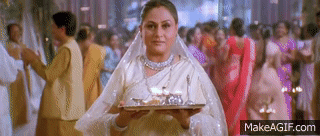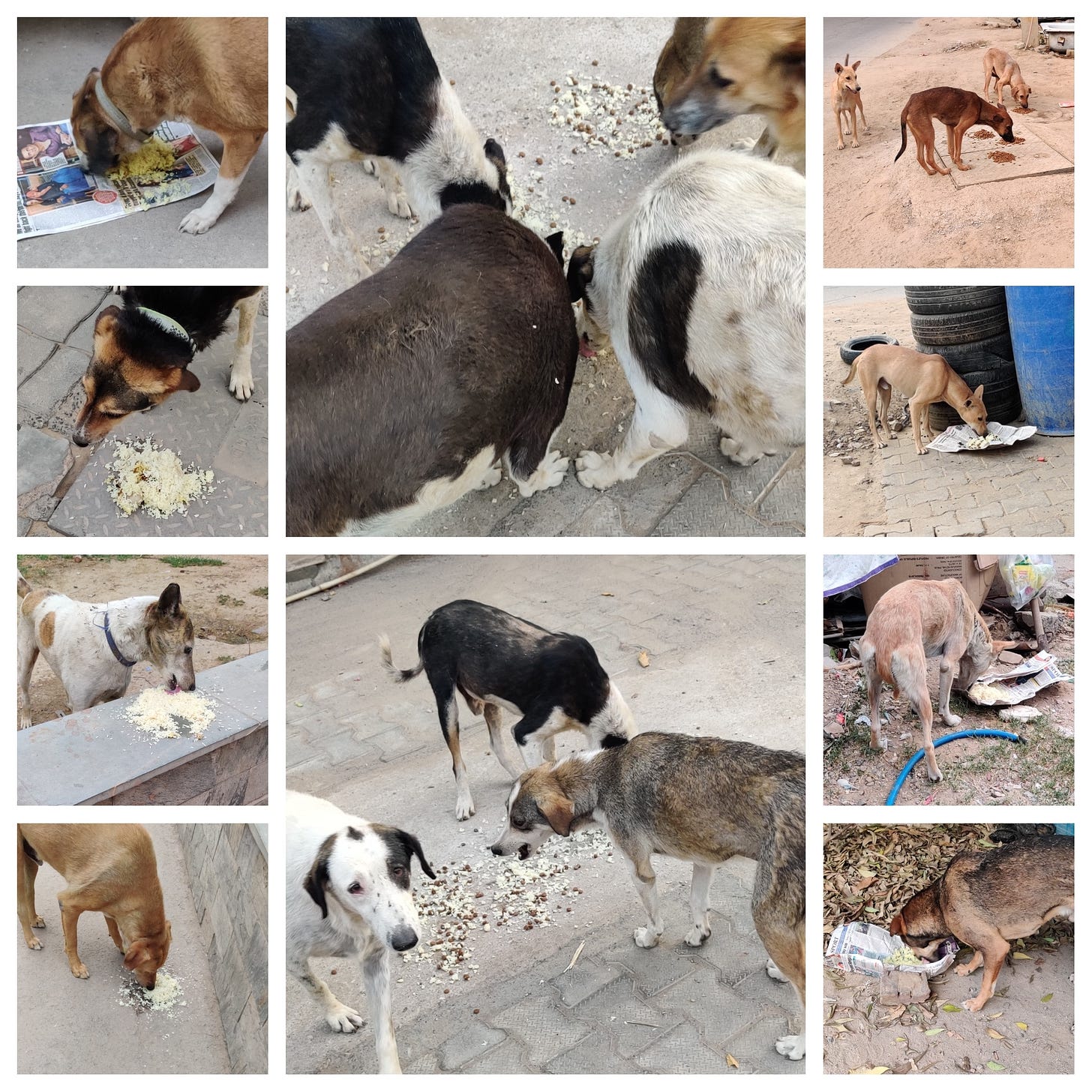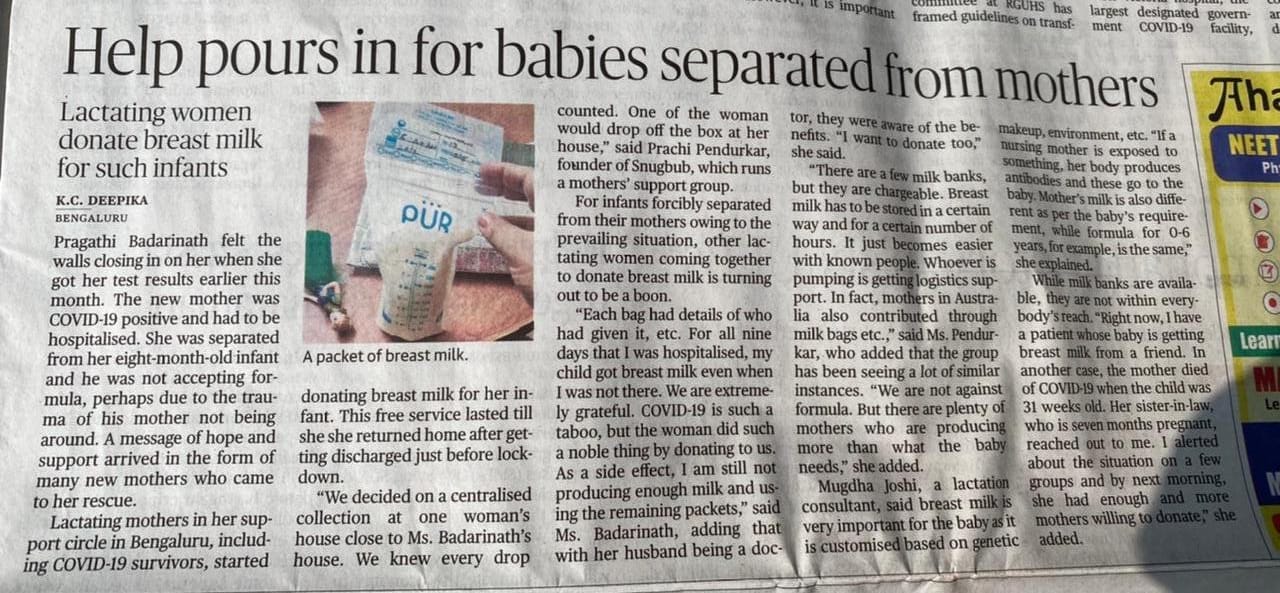Some awe-inspiring Covid Warriors
As all systems around us fail, these women are fighting the good fight
Hello ji,
So the pandemic has reached my family. Parents tested positive (thanks in advance for your happy thoughts and prayers). And the last week has been a steep learning curve.
Yours Truly is now an un-certified expert in oxygen cylinders, oxygen concentrators, valves, humidifiers, flowmeters, a variety of blood tests, and all sides of an argument over the use of oral/nasal steroids in Covid treatment.
Basically, a lot of stuff that an engineer has no business knowing.
And yet, with the healthcare system's legendary collapse in the country, throw a stone in the street today and it will likely hit one of us un-certified experts standing in a queue to refill our cylinder.
The last week has given me a taste of the best and worst of humanity. The apathy of bureaucracy. The kindness of strangers. The human vermin who decided that a pandemic is a good time to scam and loot families in their moment of distress. And Delhi Police's greatest investigative minds working hard on the case that would stump Sherlock Karamchand: "Agar aap Gurgaon mein ho, aur aapka sim card Mumbai ka hai, aur kisi ne West Bengal ke sim card se aapko Rohini Metro Station pe scam kiya toh ye case kaunse thaane ki jurisdiction mein aata hai?"

The worst of humanity may be a gift that never stops giving, but I decided to focus this week on the best among us who are giving Covid a brave fight.
The term "Covid Warriors" has been used for a year now, usually to refer to healthcare workers and essential service providers. I am applying the term, this week, in its most expansive sense, to refer to everyone who is doing their bit to make life suck a little bit less for their fellow beings in the pandemic.
Of course, my bias is in the name of this newsletter. The pandemic, our reaction to it, the failing of our systems - all of it hits women more than a little bit harder.
Which means that when a woman, despite all of it, chooses to step up and protect others around her, the sight is more than a little bit awe-inspiring.
“The toughest thing I have ever had to do”
Dr P works at a government hospital. She was posted in a small town near Delhi, and her husband was posted in another city. This made her the sole caregiver of her five-year-old son. When the pandemic began, she was suddenly asked to drop everything and report for duty in Delhi to help manage the patient load.
"My son is dependent entirely on me. He has a speech disorder which makes it difficult for other people to understand him. I was put on duty in the Covid ward for two weeks, and had to be away from him for those 15 days plus the quarantine period. That was around Diwali last year, and it was the toughest thing I have ever had to do."
In the second wave, Dr P has been on duty in the Covid OPD. She describes how a typical day at work goes for her.
"Working in a hospital is very difficult right now. Beds are limited and people are coming in hordes. Families are worried and not ready to wait in queues - men, women, elderly, educated, illiterate - all are piling over each other. I have to shout and physically manage crowds myself. You can keep asking them to maintain social distance, but they come dangerously close to you. Nobody sees us as human beings who also have to go back to our families and our kids. I try being polite and soft, but eventually I have to shout. My vocal cords swell so much that I can no longer talk at the end of my shift. On Sundays and holidays, we have to do 24-hour shifts. I come home to my son, and he is waiting to play with me. But I am too exhausted and just crash."
Doctors are taught to expect that they cannot save every patient. But losing patients the way Covid takes them is something they were never prepared for.
"In this wave, I have lost patients who died in the ambulance, five minutes from the hospital. Patients reach us gasping for air, and we know it is too late already. Even recovered patients sometimes die due to post-Covid complications. These are not counted as Covid deaths, but they are."
"When you lose a patient, it really jolts you. Even if you just spoke to them for a few minutes, even if they pass when you aren't on duty, it weighs on your mind. You think about the family, how they must be coping. Ultimately, we have to numb ourselves so we can keep functioning. There must be some papers written on the long-term psychiatric impact this pandemic will have on doctors."
Dr P shares some ways in which this terrible time for all healthcare professionals is even worse for the women working in healthcare.
"In India, healthcare infrastructure and the welfare of healthcare professionals has never been taken seriously. I used to work in a small town where patients and families would come in drunk at late hours of the night. Hospital security is a joke, making them unsafe workplaces for women. Once, a patient's relatives came in so drunk and violent that my nurses and I had to hide in a supply closet to save ourselves from them. This has become even worse in the pandemic when there are no beds, no ventilators, no oxygen, and the livid families often take out their anger on the doctor standing in front of them."
It doesn't help matters that the pandemic world - much like the world before the pandemic - is designed by men, and for men.
"PPE kits, for example, are designed keeping men in mind. This means that for most women, they are too long. We have to rush around the hospital from patient to patient and every time I am going up and down floors, I feel afraid that I will trip on my own PPE kit and fall down the stairs. The supply of PPE kits in government hospitals is woefully small - this also affects women disproportionately. Once we are in a PPE kit, we cannot remove it till our shift ends - 12, 14, 18 hours at times. Many doctors have to wear diapers because we cannot use the toilet while wearing the kit. But what about menstruating women? A woman cannot wear a single sanitary pad this long - her body could go into toxic shock. But no solution has been developed keeping women's bodies in mind, even though most of the nursing staff is female."
Doctors who are mothers also have to deal with the added challenge of caregiving for their children while on Covid duty.
"We are working 12 hours shifts every day. There are no daycares, no schools, no parks, no meeting friends for our kids. I have to accept that this period will lead to further developmental delays for my son."
Dr P is Covid positive herself right now. It is common among doctors, and she is expecting little time to recuperate.
"As soon as I recover, I will rejoin and be put on duty on Covid duty again. Right now we have a double mutant, a triple mutant, a UK strain of Covid - over 25,000 papers have been written about it, more than ever published in one year in the history of medicine. This virus is changing every day. And there is no rest for us in sight."
“Covid Bravado”
Anita is a nurse in a Mumbai government hospital. She spoke to me about the unique challenges of being a mother and a healthcare worker in a pandemic.
"Most of my male colleagues have isolated themselves from their children. Their wives are handling the kids. For me, not being able to see or touch my daughter is just not an option. This is the case with almost all women healthcare workers. That is why you will also find women being much more diligent about safety protocols. We are not always given PPE kits by the hospital. So I have fashioned a strong protective protocol of my own. I wear two hospital gowns, two masks, a face shield, gloves, shoe covers, and practically roast myself in the heat all day, everyday, so that I can protect my child from Covid. Among the other staff too, I find that women are much more careful about safety."
Her protocol seems to be working so far because Anita is one of the few staff members who tested negative in the department in a recent testing drive.
"I often see a sense of 'Covid bravado' among my male colleagues. I see them walking around in a simple mask, talking to each other, having meals together. Some of them even believe that it is honourable to come to work when they are Covid positive themselves. I get that this comes from a feeling of service, but who will answer for the safety of those around us at work and at home?"
Healthcare professionals aren't the only Covid warriors in the pandemic, though. With the healthcare infrastructure of India overwhelmed beyond belief by the second wave of Covid, common citizens of the country have stepped up in some amazing ways to provide a modicum of help, support, and solace to those who are suffering.
“We cannot not step up”
Two weeks ago, an informal community of some women alumnae of IIMs got together to help families find Covid resources like hospital beds, oxygen cylinders, medicines, and plasma donors.
Divya, who began as a member of this group, has emerged as the de facto leader, tirelessly rallying the volunteers.
"I put my hand up one day to help out one family, and sort of got sucked into the work. I keep a tab on resource requests from families of Covid patients and find volunteers available at the time to make calls, verify leads from the internet, and connect families to the resources they need."
Divya has an 8-year-old child, and her father is Covid-positive himself. While she keeps an eye on his health and recovery, she is focusing her energies on helping other families in need.
"We cannot afford to not step up at this time. The systems have collapsed entirely. There isn't much being done by the authorities to curtail or manage the situation. This is a time when we are all dependent on the kindness of strangers to keep us afloat."
As the wave gets worse with each passing day, it can get discouraging and disheartening for even the most committed volunteers to stay on the job.
"Many people have told me that it might be time to shelve this entire effort because it is often too hard to find the resources the families need. But I feel like if we can help even one family in a day, it is worth all the time, effort, and mental toll."
The team has had to deal with the loss that comes with volunteering in this field right now. Loss of a hospital bed because an ambulance could not be found in time. Loss of a loved one because an oxygen cylinder could not be found in time.
At other times, the family may find a resource through their own network before the volunteers do.
"I apologise to people for this, but each time, they say, 'You don't know what a support it has been just to know that this team was doing everything they could to help us, making hundreds of calls on our behalf.' Even if we cannot provide physical support, sometimes the emotional support of not having to do this alone can go a long way."
There are high points, too, that keep the team going.
"I remember a time when one of the volunteers said that she was dancing like a kid when she was able to find a bed for someone. We have to grab on to these little highs to keep ourselves going."
It is understandable, right now, to not be comfortable stepping out to help someone else. But, Divya feels that there is a lot that one can do even from one's home.
"Delivering medicines or groceries or fresh meals to a sick neighbour, making phone calls to help somebody find resources - these small gestures matter and leave an impact on people's lives."
In Divya's experience, women are stepping up to combat this crisis in a unique way.
"Our group is all women. Of course, there are groups out there led by men that are also doing great work. But I do feel that women have a unique ability to empathize with someone else during a crisis which gives us a special dedication to help others selflessly at a time like this."
Thinking beyond our homes (and species)
It is not just our fellow humans who are suffering at the hands of the pandemic. Life has objectively become tougher for other beings we share urban spaces with. With most people choosing to stay indoors, and street hawkers vanishing from locked-down cities, stray dogs are starving on the streets.
Rajani, who used to feed stray dogs in her colony in Gurgaon, saw this and began feeding dogs in a wider area around her. Soon, she found other volunteers feeding these dogs all over the city.
"I was humbled and touched that a lot of people came forward to take the responsibility to feed these dogs. It didn't even take a lot of work to get them to volunteer - just a post on social media, and they stepped up."
The volunteers began feeding the strays in their designated areas.
"We divided areas, and are able to ensure that almost all dogs in Gurgaon are fed by us. It is only business parks and gated colonies that don't allow us entry. I feel helpless that we cannot reach the dogs who live there, and hope that someone is taking care of them inside."
Rajani herself does an inspiring job, day after day, devoting her time, energy, resources, and love to the dogs.
"I wake up at 5am everyday, and cook rice and meat for the dogs. I source waste meat from local vendors so that no animal has to be slaughtered for my purchase. I feed the dogs on the Sohna Road stretch and the colonies around it. Overall, I feed 40 dogs everyday."
Rajani says that she is not alone. All the other volunteers make efforts like this, and most of them are women.
"I find women to be exceptionally empathetic. They are sensitive to the needs of others. They observe keenly, and genuinely go the extra mile to help. Even in these times, when nobody wants to step out of their homes, these women are cooking for so many dogs, and feeding them. I know how difficult it is for me to carry the food of 40 dogs to my car every morning by myself. But all these women are shouldering this physical, mental and emotional responsibility to help animals who can not even say 'Thank You' in return."
Rajani wishes more people would think about the plight of animals around them, even if they make small efforts like giving food and water to them.
"I want people to know that if you take proper precautions - wear a mask, wash your hands - there is no risk in feeding strays in your area. Even if you might not want to feed 40 dogs like me, you can feed one or two strays around your house. I have been doing this since Covid began, and I have never tested positive or even had any symptoms."
It is a difficult and resource-intensive job that Rajani is doing. If you would like to support her work, you can message her on this page, donate financially, or send her dog food or rice for the mutts. She also runs adoption drives for orphaned and abandoned dogs, and if you adopt a dog, you are an absolute star!
Score: Mothers-1000, Covid-0
Malavika is a part of a support group for moms in Bangalore. The group came together to help when Covid struck any member's family. One story of support, however, was so touching that I want to end this piece with it, just to leave you on a bright note in this dark age.
"One of the moms on the group got Covid and had to be hospitalized. She was separated from her baby, who had been exclusively breastfed so far, and refused to drink formula milk. Her entire family had tested positive so the other caregivers were helpless too."
The group admins put out a call for breastmilk donors. When Malavika heard about the baby, her heart broke.
"As a mother, my biggest nightmare right now is being separated from my child. Something made me decide to help. My daughter is also breastfed but I hadn't pumped milk in over a year. I wasn't even sure if I'd be able to get any milk out but knew that every drop counts. To my surprise, my body was moved into action too, and I managed to donate milk for three days."
Malavika wasn't alone either. Over 20 mothers pumped milk for the baby, some of them for the entire duration that the mother was hospitalized. Proving that kindness begets kindness, the (now recovered) mother of the baby has resolved to pay it forward by becoming a donor herself for other babies separated from their mothers due to Covid.
"The admins sent us a video of the baby being fed our donated milk. I couldn't hold back my tears when I saw it. Mothers: 1000, Covid: 0. Fuck you, Covid."
If you are sitting at home right now, wanting to help but unsure how to, I hope you read this piece as a menu of options.
If you are looking for Covid Aid fundraisers to donate to, I shared several in last week’s post.
And if this relentless wave has left you feeling exhausted, anxious, and depressed, maybe reading these stories will help.
In conclusion, Fuck you, Covid.
Mahima
If you like the work I am doing with this newsletter, you can show me your love by buying me a coffee. Or monthly, or yearly coffees. Click ‘Membership’ or ‘Support’ on:
Also, do follow Womaning in India on Instagram, Facebook, Twitter.








Mahima, eye opener once again. Hats off to to people like Doctor P and Anita and all who struggle without any acknowledgement.